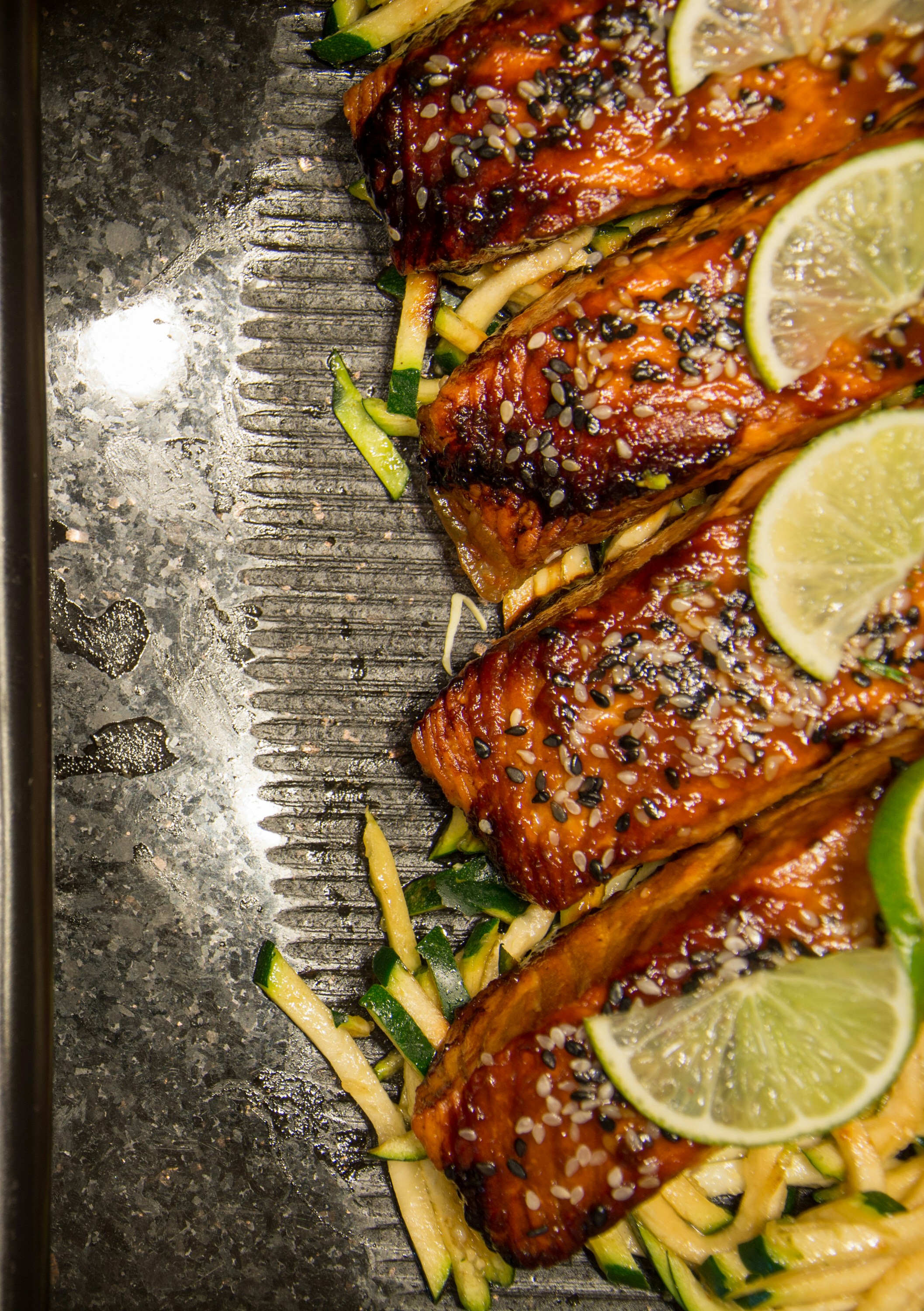Are you following the keto diet and curious about what beverages you can enjoy while staying in ketosis? Look no further! This article will provide you with a comprehensive guide to the beverages that are compatible with the keto diet. From refreshing herbal teas to energizing coffee options, we’ve got you covered. Say goodbye to the confusion and say hello to a delicious and satisfying selection of beverages that will keep you on track with your keto goals. Let’s dive in and explore the world of keto-friendly drinks!

Understanding the Keto Diet
The Keto Diet, short for the ketogenic diet, is a low-carb, high-fat diet that has gained popularity in recent years. The goal of the diet is to switch your body’s primary source of fuel from carbohydrates to fats, putting you into a state of ketosis. In ketosis, your body starts burning stored fats for energy instead of relying on glucose from carbohydrates. This process can lead to weight loss, increased energy levels, and improved mental clarity.
Basics of the Keto Diet
To follow the keto diet, you need to adhere to a specific macronutrient ratio. The typical breakdown is about 75% fat, 20% protein, and 5% carbs. By significantly reducing your carbohydrate intake and replacing it with healthy fats, you can retrain your body to burn fat for fuel.
How Beverages Impact the Keto Diet
When following the keto diet, it is essential to pay attention not only to the foods you consume but also to the beverages you drink. Many beverages contain hidden carbs and sugars that can derail your progress and kick you out of ketosis. It’s important to choose your drinks wisely to ensure they align with the low-carb, high-fat requirements of the ketogenic diet.
The Importance of Hydration on Keto
Hydration is crucial for overall health, regardless of the diet you follow. However, it becomes even more important when following the keto diet. The body excretes excess water during the initial stages of ketosis, so it’s vital to replenish those fluids and avoid dehydration. Proper hydration can also help reduce keto flu symptoms and support optimal bodily functions.
Water on the Keto Diet
Water is the most obvious and essential beverage choice when following the keto diet. It contains zero carbs, zero calories, and provides numerous health benefits. Drinking enough water on a daily basis can aid in digestion, regulate body temperature, support weight loss, and flush out toxins. It is recommended to drink at least 8 cups (64 ounces) of water per day, but individual needs may vary.
Benefits of Water Consumption on Keto
Water consumption offers several benefits to those following the keto diet. Firstly, hydration plays a crucial role in maintaining proper bodily functions, such as digestion and metabolism. Additionally, drinking water can help curb appetite, as thirst is often mistaken for hunger. This can be particularly helpful when adhering to a low-calorie diet. Proper hydration also promotes healthy skin, reduces the risk of kidney stones, and supports muscle function during workouts.
How Much Water Should You Drink
Determining the right amount of water to drink on the keto diet can depend on various factors such as your body weight, activity level, and climate. As a general guideline, aim for at least 8 cups (64 ounces) of water per day. However, listen to your body’s signals and increase your intake if you feel thirsty or are engaging in intense physical activity. Remember to hydrate consistently throughout the day to maintain optimal hydration levels.
Tea and Coffee on the Keto Diet
Many people rely on tea and coffee for their daily caffeine fix. Fortunately, these beverages can still be enjoyed while following the keto diet, as long as you make certain considerations.
Can You Drink Caffeinated Drinks on Keto
Yes, you can drink caffeinated drinks like tea and coffee on the keto diet. However, it’s essential to be mindful of any additions you include in your drink, such as sugar, milk, or flavored syrups. Opt for unsweetened varieties and use low-carb sweeteners or sugar substitutes if desired. Caffeine itself does not typically impact ketosis, but sugary or high-carb additives can.
Best Keto-Friendly Coffee and Tea Options
When choosing coffee or tea while on the keto diet, it’s best to opt for black coffee or unsweetened tea. These options contain zero carbs and can be consumed without negatively impacting ketosis. You can also experiment with adding healthy fats like coconut oil or ghee to your coffee to boost your fat intake and add flavor. Additionally, there are various herbal teas available that are naturally caffeine-free and carb-free, making them ideal for the keto diet.
Potential Side Effects of Caffeine on Keto
While caffeine itself is generally safe to consume on the keto diet, some individuals may experience side effects. Caffeine can increase heart rate and blood pressure, leading to feelings of jitteriness or anxiety in sensitive individuals. Additionally, caffeine can disrupt sleep patterns, which may impact overall wellbeing and hinder weight loss. It’s best to listen to your body and monitor your caffeine intake to ensure it aligns with your personal needs and goals.
Alcohol and the Keto Diet
Alcohol is a topic of concern for many keto dieters. It’s important to understand how different types of alcohol can impact ketosis and make informed choices about your beverage consumption.
Can Alcohol Be Consumed on Keto
Yes, alcohol can be consumed on the keto diet, but it’s important to be cautious. The body prioritizes metabolizing alcohol over burning fat for energy, which can temporarily stall weight loss and fat-burning. Additionally, most alcoholic beverages contain varying amounts of carbs, which can potentially kick you out of ketosis. It’s crucial to choose low-carb options and moderate your alcohol intake to minimize its impact on your keto journey.
Carb Content of Various Alcohols
The carbohydrate content of alcoholic beverages can vary significantly. Be aware that some options, such as beer and sugary cocktails, can contain high amounts of carbs, while others like spirits and dry wines have lower carb counts. It’s important to read labels, do research, or ask the bartender about the carb content of specific drinks. Opt for low-carb options like vodka, whiskey, tequila, or dry wines, and avoid mixed drinks with syrups or sweeteners.
Impact of Alcohol on Ketosis
Consuming alcohol can temporarily halt your body’s ability to burn fat for fuel, as the liver prioritizes metabolizing alcohol over ketone production. This can slow down weight loss progress and extend the time it takes for your body to return to ketosis. Additionally, alcohol can impair judgment and lead to poor food choices, potentially derailing your diet. If you choose to drink alcohol on the keto diet, moderation is key.
Energy Drinks on the Keto Diet
Energy drinks are a popular choice for many individuals seeking a quick energy boost. However, most traditional energy drinks are high in sugar and carbohydrates, making them unsuitable for the keto diet. Let’s explore the compatibility of energy drinks with the ketogenic lifestyle.
Are Energy Drinks Ketosis-friendly?
Most traditional energy drinks are not considered keto-friendly due to their high sugar and carb content. These drinks often contain significant amounts of added sugars and artificial sweeteners, which can spike insulin levels and knock you out of ketosis. Additionally, energy drinks may contain other ingredients like taurine and B vitamins, but the benefits of these additives do not outweigh the negative impact of the sugar content.
Choosing the Right Low-carb Energy Drinks
If you find yourself needing an energy boost while on the keto diet, there are low-carb energy drink options available. Look for energy drinks specifically marketed as “sugar-free,” “zero-carb,” or “keto-friendly.” These drinks typically use artificial sweeteners or sugar substitutes to provide flavor without the carb load. However, it’s still important to read labels and be mindful of any other ingredients that may be present.
Protein Shakes and Smoothies on the Keto Diet
Protein shakes and smoothies can be a convenient way to supplement your keto diet and ensure you’re meeting your protein needs. However, it’s crucial to be mindful of the ingredients and choose keto-friendly options.
Using Protein Shakes to Supplement Your Keto Diet
Protein shakes can be a valuable tool on the keto diet, especially for individuals who struggle to meet their protein requirements through whole foods alone. Protein plays a crucial role in repairing and building muscle, supporting satiety, and promoting overall health. When selecting a protein shake, opt for low-carb, high-quality protein powders without added sugars or artificial sweeteners. Consider using unsweetened nut milk or water as the base to keep carbohydrate content low.
Creating Keto-friendly Smoothies
Smoothies can be a delicious and refreshing way to incorporate healthy fats, protein, and low-carb fruits or vegetables into your keto diet. Start with a base of unsweetened nut milk, coconut milk, or water. Add a source of protein like a scoop of low-carb protein powder or Greek yogurt. Include healthy fats like avocado, coconut oil, or nut butter for added satiety. Lastly, incorporate low-carb fruits or vegetables like berries, spinach, or kale to keep the net carb count in check.
Protein Powder Options for Keto
When selecting a protein powder for your keto diet, look for options that are low in carbs and free of added sugars or artificial sweeteners. Whey protein isolate, collagen peptides, and plant-based protein powders like pea or hemp protein are popular choices among keto dieters. These options provide a good amount of protein while minimizing carb intake. Be sure to read the nutrition labels and choose a protein powder that aligns with your specific dietary needs and goals.
Dairy and Non-Dairy Milk on the Keto Diet
Milk is a staple beverage for many people, but it can be problematic on the keto diet due to its lactose (milk sugar) content. Let’s explore the options for dairy and non-dairy milk on the keto diet.
Can You Drink Milk on the Keto Diet
Regular cow’s milk contains lactose, a type of sugar that can significantly impact ketosis. As a result, it’s generally recommended to avoid regular milk while on the keto diet. However, there are alternatives available that can still provide the creamy, nutrient-rich qualities of milk without the excess carbs.
Choosing the Best Keto-friendly Milk Alternatives
Several milk alternatives are suitable options for those on the keto diet. Unsweetened almond milk, coconut milk, and cashew milk are low in carbs and often readily available in grocery stores. These options contain minimal carbs and are naturally lactose-free. They can be used in cooking, baking, or enjoyed plain as a refreshing beverage. It’s important to read labels and choose unsweetened varieties to avoid hidden sugars.
Fruit Juices and Soft Drinks on the Keto Diet
Fruit juices and soft drinks are typically high in sugar and carbohydrates, which can make them incompatible with the keto diet. However, there are low-carb alternatives available that can still satisfy your thirst without causing a spike in blood sugar.
Why Most Fruit Juices and Soft Drinks Aren’t Keto-Friendly
Most fruit juices and soft drinks are loaded with added sugars or high-fructose corn syrup. These sugars can quickly raise blood sugar levels and kick you out of ketosis. Additionally, even natural fruit juices contain natural sugars, which can still impact insulin levels. The carb content in soft drinks can be just as high, making them equally unsuitable for the keto diet. It’s best to avoid these beverages and opt for lower-carb options.
Low-carb Juice and Soft Drink Alternatives
If you’re looking for a refreshing beverage without the excess carbs, there are alternatives available that can still satisfy your cravings on the keto diet. Try infusing water with fresh herbs and fruits like mint and berries for a naturally flavored drink. Seltzer water or sparkling water with a squeeze of lemon or lime can also be a great option. Additionally, there are various sugar-free, low-carb soft drinks and fruit-flavored water enhancers available that can be enjoyed without compromising ketosis.
Bone Broth on the Keto Diet
Bone broth has gained popularity in recent years due to its numerous health benefits and its compatibility with various diets, including the keto diet. Let’s explore why bone broth is a beneficial beverage to include in your keto diet.
Benefits of Bone Broth on Keto
Bone broth is highly nutritious and can provide several health benefits for those on the keto diet. It is rich in collagen, which supports skin health, joint health, and gut health. The amino acids found in bone broth can promote muscle growth and repair. Additionally, bone broth is low in carbohydrates and calories, making it an excellent option for those looking to maintain ketosis while enjoying a warm and comforting beverage.
How to Make Your Own Keto-friendly Bone Broth
Making your own bone broth can be a simple and cost-effective way to enjoy this nutritious beverage on the keto diet. Start by collecting bones from high-quality sources, such as grass-fed beef or free-range chicken. Roast the bones to enhance flavor, then simmer them in water with vegetables, herbs, and spices for several hours. Strain the broth and store it in the fridge or freezer for future use. Homemade bone broth allows you to control the ingredients and ensure you’re getting a keto-friendly option without any added sugars or unnecessary additives.
What Beverages to Avoid on the Keto Diet
While there are many beverages that can be enjoyed on the keto diet, it’s important to be aware of those that should be avoided due to their high carbohydrate content.
Common High-carb Drinks
The following beverages should be avoided on the keto diet due to their high carbohydrate content:
- Regular soft drinks and fruit juices: These beverages are typically loaded with added sugars or high-fructose corn syrup, spiking blood sugar levels and inhibiting ketosis.
- Sweetened coffee and tea drinks: Be mindful of sweeteners, syrups, and milk additives that can significantly increase the carb content of your favorite coffee shop drinks.
- Smoothies and milkshakes: These can be high in sugar and carbs, even if they contain ingredients like fruits or vegetables.
- Energy drinks (unless low-carb): Most traditional energy drinks contain excessive amounts of added sugars or artificial sweeteners, making them incompatible with the keto diet.
- Alcoholic beverages with high carb content: Beer, sugary cocktails, and sweet wines are best avoided on the keto diet due to their carbohydrate content.
How to Read Beverage Nutrition Labels on Keto
Reading beverage nutrition labels on the keto diet is crucial to ensure you’re making informed choices that align with your macros and goals. Start by examining the serving size and the total carbohydrate count. Look for hidden sugars, artificial sweeteners, or high-carb additives. Pay attention to ingredients like syrups, fruit juices, or milk, as well as any listed grams of sugar and fiber. By understanding and analyzing the nutritional information, you can make educated decisions about which beverages to include or avoid on the keto diet.
In conclusion, understanding the impact of various beverages on the keto diet is essential for maintaining ketosis and achieving your health and wellness goals. By choosing low-carb, keto-friendly options like water, unsweetened tea and coffee, low-carb energy drinks, bone broth, and certain milk alternatives, you can quench your thirst while staying in a state of ketosis. Be mindful of hidden sugars and carb-heavy additives in other beverages, and always read nutrition labels to make informed choices. With the right beverage choices, you can maximize the benefits of the keto diet and enjoy a variety of refreshing and satisfying drinks along your keto journey.





